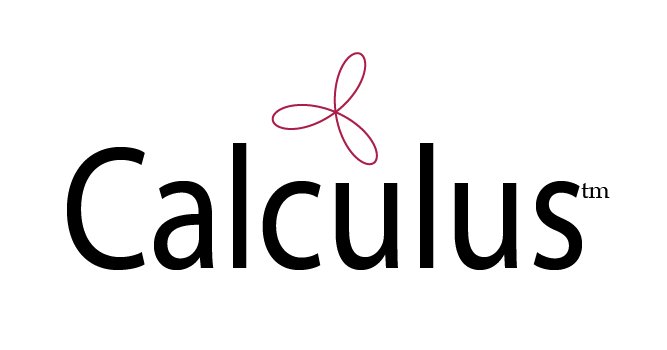Calculus Tax’s proprietary AI-driven platform represents a paradigm shift in how tax relief, accounting, and bookkeeping services are delivered. By harnessing the power of machine learning algorithms, the company offers unparalleled accuracy, efficiency, and personalization in financial management.
“Our mission at Calculus Tax is to demystify the complex world of taxation and financial management,” said Emily Chen, publicist at Calculus Tax. “We’re not just offering a service; we’re providing peace of mind through technology that understands and adapts to each client’s unique financial situation.”
The company’s AI-powered system can analyze vast amounts of financial data in seconds, identifying potential tax savings, flagging discrepancies, and offering tailored advice that was previously only available through time-consuming manual processes.
From Stanford Classroom to Industry Disruptor
The journey of Calculus Tax began in a Stanford University in 2019 as part of a capstone project for the Idea to Market post-graduate program. The project set out to explore how artificial intelligence could revolutionize the tax industry using technology.
“We saw an opportunity to apply cutting-edge AI technology to solve real-world problems in the financial sector,” explained Mrs. Chen. “What started as an academic exercise quickly revealed its potential to transform an entire industry.”
The project caught the attention of Silicon Valley investors, interested in seed funding that prior to covid, which paused development for a brief period. But since has secured funding allowing the team to transform their concept into a fully-fledged company. Calculus Tax has grown exponentially, attracting top talent from both the tech and finance sectors.
AI-Powered Features Driving Innovation
Calculus Tax’s platform boasts a suite of innovative features that set it apart in the market:
Intelligent Tax Optimization
The AI engine at the heart of Calculus Tax’s platform continuously analyzes tax codes and regulations, identifying opportunities for tax savings that human accountants might miss. This feature ensures that clients always benefit from the most up-to-date tax strategies.
Real-Time Financial Health Monitoring
By integrating with various financial accounts and systems, Calculus Tax provides real-time insights into a client’s financial health which is especially helpful for tax relief services clients. The AI monitors transactions, spending patterns, and income fluctuations, offering proactive advice to improve financial stability and tax positioning.
Automated Bookkeeping with Human Oversight
Calculus Tax’s AI automates tedious bookkeeping tasks with unprecedented accuracy. The system categorizes transactions, reconciles accounts, and generates financial reports automatically. However, a team of expert accountants oversees the process, ensuring the human touch where it matters most.
Predictive Tax Liability Forecasting
Using advanced machine learning models, Calculus Tax can forecast future tax liabilities with remarkable accuracy. This feature allows clients to plan ahead, avoiding surprises and optimizing their financial strategies year-round.
Personalized Tax Relief Strategies
For clients facing tax debt, Calculus Tax’s AI tax relief analyzes their financial situation and negotiates with tax authorities on their behalf. The system crafts personalized relief strategies, maximizing the chances of a favorable resolution.
Commitment to Security and Privacy
In an era where data security is paramount, Calculus Tax has implemented state-of-the-art encryption and security protocols to protect client information. The company adheres to the highest standards of data privacy, ensuring that sensitive financial information remains confidential and secure.
“We understand that we’re dealing with our clients’ most sensitive data,” said Mark Thompson, Chief Security Officer at Calculus Tax. “Our security measures go beyond industry standards to provide an unparalleled level of protection.”
Impact on the Tax Relief Industry
The launch of Calculus Tax marks a significant milestone in the tax relief and financial services sector. Traditional firms are taking notice, with many scrambling to update their own technological capabilities in response.
Calculus Tax is not just disrupting the industry; they’re setting a new standard for what clients should expect from their financial service providers. Their AI-driven approach is likely to become the norm rather than the exception in the coming years.
Looking to the Future
As Calculus Tax continues to grow, the company is already looking ahead to future innovations. Plans are underway to expand their services to include AI-driven investment advice and automated tax filing for both individuals and businesses.
“We’re just scratching the surface of what’s possible with AI in the financial sector,” Mrs. Chen enthused. “Our goal is to create a comprehensive financial ecosystem where AI works seamlessly with human expertise to provide unparalleled value to our clients.”
About Calculus Tax
Calculus Tax is a fintech company specializing in AI and machine learning-based accounting, tax relief, and bookkeeping services. Calculus Tax is committed to making expert-level financial services accessible to individuals and businesses of all sizes through innovative technology.
For more information about Calculus Tax and its revolutionary AI-powered financial services, visit the website for Calculus Tax or contact:
Media Relations
Calculus Tax, Inc.
press@calculustax.com
(650) 331-2848
The Technology Behind Calculus Tax
At the core of Calculus Tax’s innovative approach is a sophisticated artificial intelligence system that combines several cutting-edge technologies:
Natural Language Processing (NLP)
Calculus Tax employs advanced NLP algorithms to interpret and analyze financial documents, tax codes, and client communications. This allows the system to understand context and nuance in financial data, much like a human expert would.
“Our NLP capabilities enable us to process unstructured data from various sources, extracting valuable insights that inform our tax strategies,” explained Mrs. Chen.
Deep Learning Neural Networks
The company’s AI utilizes deep learning neural networks to identify patterns and anomalies in financial data. This technology allows Calculus Tax to offer predictive analytics and personalized financial advice at a scale previously unattainable.
Reinforcement Learning
Calculus Tax’s AI system employs reinforcement learning techniques to continuously improve its decision-making processes. As the AI interacts with more financial data and scenarios, it becomes increasingly adept at optimizing tax strategies and financial planning.
Client Success Stories
Since its soft launch earlier this year, Calculus Tax has already helped numerous clients achieve significant financial outcomes:
Small Business Tax Savings
A local restaurant facing complex tax issues due to rapid expansion turned to Calculus Tax for help. The AI-powered system identified several overlooked deductions and tax credits, resulting in a 17% reduction in the company’s tax liability.
“Calculus Tax’s AI found savings we never knew existed,” said the restaurant’s owner. “It’s like having a team of tax experts working around the clock for us.”
Individual Tax Debt Resolution
A freelance graphic designer struggling with a substantial tax debt used Calculus Tax’s platform to negotiate with the IRS. The AI-driven system analyzed her financial situation and proposed a payment plan that was accepted by the IRS, reducing her monthly payments by 60%.
“I was overwhelmed by my tax debt, but Calculus Tax made the resolution process smooth and manageable,” the designer shared.
Automated Bookkeeping for Startups
A tech startup integrated Calculus Tax’s automated bookkeeping system, freeing up valuable time and resources. The AI’s ability to categorize expenses and generate real-time financial reports helped the company make data-driven decisions that accelerated their growth.
The Human Element: Combining AI with Expertise
While AI is at the forefront of Calculus Tax’s offerings, the company emphasizes the crucial role of human expertise in its services.
“Our AI is incredibly powerful, but it’s the combination of artificial and human intelligence that truly sets us apart,” said Mrs. Chen. “Our team of certified accountants and tax experts work alongside the AI, providing oversight, interpretation, and the critical thinking necessary for complex financial decisions.”
This hybrid approach ensures that clients benefit from both the efficiency and pattern-recognition capabilities of AI and the nuanced understanding and strategic thinking of human professionals.
Addressing Industry Challenges
Calculus Tax’s innovative approach is helping to address several long-standing challenges in the tax and accounting industry:
Reducing Human Error and Time to Deliver
By automating data entry and calculations, Calculus Tax’s AI significantly reduces the risk of human error in financial processes. This not only improves accuracy but also helps clients avoid costly mistakes that could lead to audits or penalties.
Keeping Pace with Regulatory Changes
Tax laws and regulations are constantly evolving. Calculus Tax’s AI continuously updates its knowledge base, ensuring that all advice and calculations are based on the most current regulations.
Democratizing Expert-Level Tax Advice
Traditionally, access to sophisticated tax strategies was limited to those who could afford high-priced consultants. Calculus Tax’s AI-driven platform makes expert-level tax advice accessible to a broader range of individuals and businesses.
Streamlining Compliance
For businesses, maintaining tax compliance across multiple jurisdictions can be a complex and time-consuming process. Calculus Tax automates much of this work, ensuring businesses stay compliant without dedicating excessive resources to the task.
Environmental and Social Impact
Calculus Tax is not only focused on financial innovation but also on making a positive impact on society and the environment:
Paperless Operations
By digitizing tax and accounting processes, Calculus Tax is helping to reduce paper waste in the financial industry. The company estimates that its services have already saved millions of sheets of paper.
Empowering Financial Literacy
Calculus Tax is committed to improving financial literacy. The company offers free educational resources and webinars to help individuals and small business owners better understand their finances and tax obligations.
Supporting Non-Profits
Through its “AI for Good” initiative, Calculus Tax offers pro bono services to select non-profit organizations, helping them optimize their finances and maximize their impact.
The Road Ahead: Future Innovations
As Calculus Tax continues to push the boundaries of what’s possible in AI-driven financial services, the company has several exciting developments on the horizon:
AI-Powered Financial Planning
The next phase of Calculus Tax’s development includes an AI-driven financial planning tool that will offer personalized, long-term financial strategies based on an individual’s goals, risk tolerance, and financial situation.
Conclusion: A New Era in Financial Services
The launch of Calculus Tax marks the beginning of a new era in financial services, where artificial intelligence and human expertise combine to offer unprecedented levels of accuracy, efficiency, and personalization in tax relief, accounting, and bookkeeping.
As the company continues to innovate and expand, it is poised to reshape the landscape of financial management, making expert-level financial services accessible to all. With its roots in academic excellence and its eyes firmly on the future, Calculus Tax is not just a company to watch – it’s a glimpse into the future of finance.
For more information about Calculus Tax relief services and to experience the future of financial services, visit www.calculustax.com.





